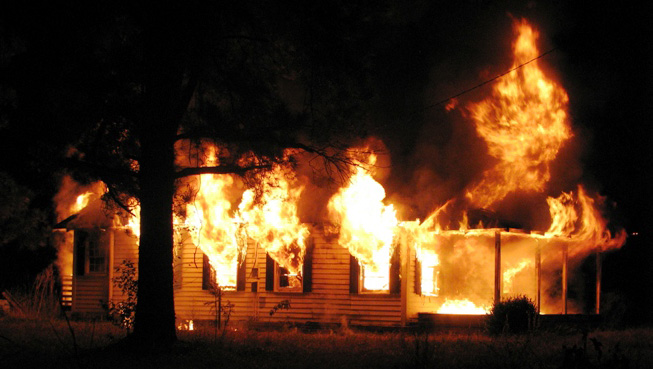
In its unanimous opinion in Rancosky v. Washington National Insurance Company, 170 A.3d 364 (Pa. 2017), the Pennsylvania Supreme Court confirmed the elements of an insurance bad faith action under Pennsylvania’s bad faith statute. The Court stated: “we adopt the two-part test articulated by the Superior Court in Terletsky v. Prudential Property & Cas. Ins. Co., 649 A.2d 680 (Pa. Super. 1994), which provides that, in order to recover in a bad faith action, the plaintiff must present clear and convincing evidence (1) that the insurer did not have a reasonable basis for denying benefits under the policy and (2) that the insurer knew of or recklessly disregarded its lack of a reasonable basis. Additionally, we hold that proof of an insurance company’s motive of self-interest or ill-will is not a prerequisite to prevailing in a bad faith claim under Section 8371, as argued by Appellant. While such evidence is probative of the second Terletsky prong, we hold that evidence of the insurer’s knowledge or recklessness as to its lack of a reasonable basis in denying policy benefits is sufficient.” Id. at 23-24. Additionally, the Court noted that mere negligence is insufficient for a finding of bad faith under §8371. Id. at 18.
The Rancosky opinion did not change the pursuit, or the defense, of insurance bad faith claims, so much as it confirmed a body of intermediate appellate case law that had developed over the last 24 years. Most practitioners and courts had applied the Terletshy test since its publication in 1994. With Rancosky now firmly establishing what is required to prove bad faith, experts used by the parties in insurance bad faith litigation will need to tailor their reports to that standard.
Experts, of course, are not required by statute or case law in Pennsylvania insurance bad faith cases. Experts are employed by the parties at the discretion of the trial judge. Experts are to provide opinion on the reasonableness of the insurer’s conduct to assist the judge or jury in determining if the insurer acted in bad faith. Experts are to opine on the reasonableness of the insurer’s conduct, not on whether they believe the insurer acted in bad faith. That decision is reserved for the trier of fact. Most courts permit expert testimony to assist in assessing the reasonableness of the involved insurer’s conduct.
Post-Rancosky, what does an expert need to assess the reasonableness of the insurer’s conduct? In other words, what do litigators need to provide an expert in order for him or her to prepare an informed, credible report, one that will stand up to summary judgment motion and trial cross-examination? This article will address these questions. My observations are based on my 15 years and over 50 expert reports in insurance bad faith cases, mostly as an expert for the defense. A second planned article will address what counsel can expect in an insurance bad faith expert report.
What Does the Expert Need to Evaluate An Insurance Bad Faith Claim?
Let’s make the answer simple: SEND ALL NON-PRIVILEGED FILE MATERIAL TO ME and let me review them and decide what is important to my review of the insurer’s conduct. And please don’t try to influence my opinion by sending only the documents that support your client’s position, or only the “pertinent” documents that you believe are determinative of the insurer’s conduct.
Another reason to send it all to me is to avoid surprise and embarrassment at trial. I don’t want to ever have to say I have not seen a document from the file. I won’t appear surprised at trial, and I won’t have to embarrass counsel by pointing out that counsel never provided me with the document.
Finally, do not send an unredacted claim file. I don’t want to rely on documents in my report that were not produced to opposing counsel. To do so is to risk the credibility of my report, or at least result in an order from the court requiring production of the documents in question and me having to perhaps amend my report.
What Do I Expect To See In The Claim File?
What is typically contained in a claim file will depend on the type of claim involved. For example, a property damage claim will not contain medical reports and records. An auto personal injury liability claim file will not contain a fire cause and origin report. Having said that, we can generalize what most claim files should contain, as follows:
- Insurance policy: The applicable insurance policy and declaration page for the date of loss.
- Correspondence: All correspondence, including letters, e-mail and texts by and between anyone involved in the claim.
- Reports: Police, doctors, witnesses, parties, experts, investigators, counsel.
- Court related documents: Pleadings, motions, discovery and opinions from the bad faith action and pertinent documents from the underlying tort suit if there was one.
- Log entries: Pennsylvania insurance regulations require insurers to maintain records of their claim handling activity sufficient to permit the Insurance Department to assess what was done on a given claim. Typically, this is done by insurers through a “claim log”, either manual or more likely today by computer entry. These notes are often invaluable in assessing the insurer’s conduct in a bad faith case. It is the place where claims adjusters can sort out their thinking on a claim and explain their actions, or fail to do so.
- Claim specific records: For example, medical records in injury cases and damage assessments and insurer has allegedly failed to adhere to its own internal claims handling procedures) the insurer’s claims handling manual and “best claims practices” should be provided to me.
Not all claim files will contain all these items.
Some counsel will go in the other direction, and want to send me everything, even their “work product”, such as their summary of the case, their theory of the case, a chronology they prepared for the case, their summary of medical records in the case, etc. I do not want that information; I want to review the file on my own, prepare my own chronology, summarize the issues in my own way, and form my own understanding of the case.
I am being paid to reach my own conclusions about the insurer’s conduct, not “parrot” counsel’s view of the case. To do otherwise – that is, to provide me your work product – can make for a very uncomfortable cross-examination for me, and an effective challenge to the credibility of the defense for you.
David Cole is owner of David Cole Consulting, Inc. and he may contacted at 844-744-5600 or dcole@philadefense.org. For more information about Mr. Cole and his litigation support services, please see his website at www.colelitigationconsulting.com




